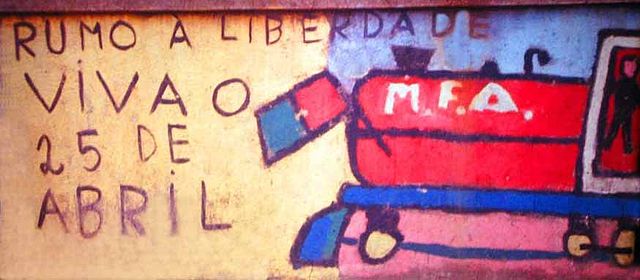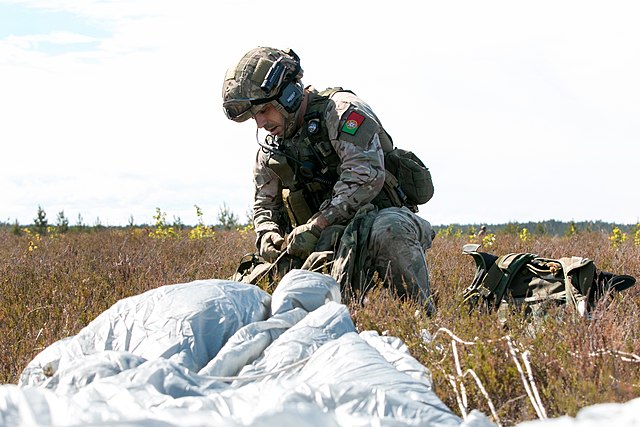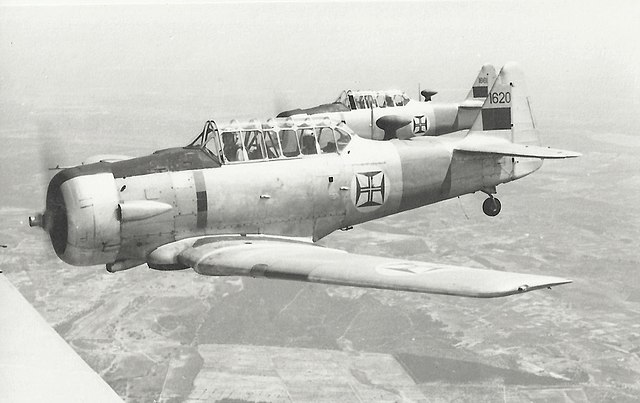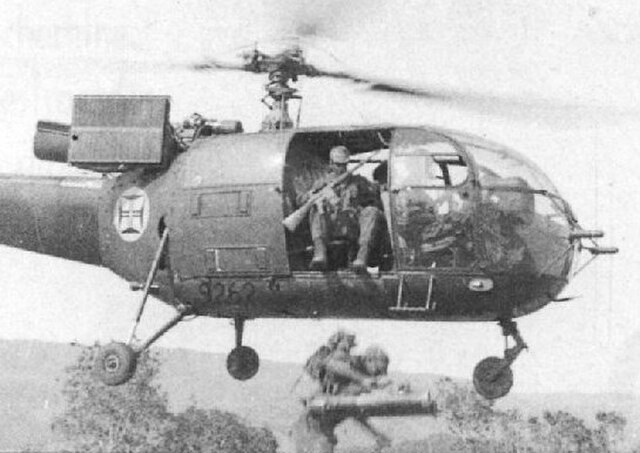The Armed Forces Movement was an organization of lower-ranking officers in the Portuguese Armed Forces. It was responsible for instigating the Carnation Revolution of 1974, a military coup in Lisbon that ended Portugal's corporatist New State regime and the Portuguese Colonial War, which led to the independence of Portugal's overseas territories in Africa. The MFA instituted the National Salvation Junta as the provisional national government 1974 to 1976, following a communiqué of its president, António de Spínola, at 1:30 a.m. on 26 April 1974.
A mural dedicated to the MFA, it reads: "Towards freedom. Long live the 25th of April!"
The Portuguese Armed Forces are the military of Portugal. They include the General Staff of the Armed Forces, the other unified bodies and the three service branches: Portuguese Navy, Portuguese Army and Portuguese Air Force.
A Portuguese paratrooper gathers his chute and gear after landing into Adazi Base, Latvia, after conducting a high-altitude low-opening (HALO) jump
Portuguese naval and land forces in the Conquest of Asilah, 15th century
Training of pilots of the Portuguese Armed Forces in the early 1960s, in T-6 aircraft
Portuguese paratroopers jump from an Alouette III helicopter in an air-mobile assault in Angola, in the early stages of the Overseas Wars





